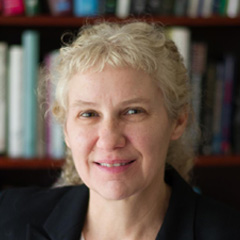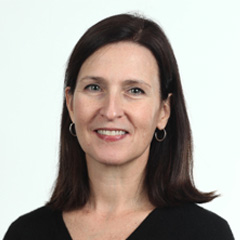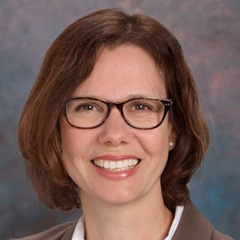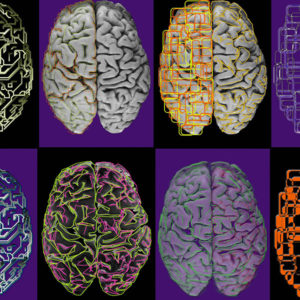Molecular Neurodegeneration and Therapeutic Approaches (Virtual Course)
25–29 January 2021
Wellcome Genome Campus, UK
Summary
Owing to the ongoing situation with covid-19, this event will be organised as a virtual course.
We are taking the opportunity of this new format to introduce some exciting changes to this popular course. To complement our academic lectures we have invited speakers from industry highlighting novel and innovative therapeutic approaches for the neurological diseases presented. With our adaptation to online learning our course schedule will comprise a mixture of live streamed lectures, live student presentations, live Q&A sessions as well as additional complementary on demand material.
This course provides an overview of the molecular basis of neurodegenerative disorders and is aimed at individuals working in neurodegenerative research, neurogenetics or translational neuroscience, including clinical scientists, veterinary scientists, PhD students and post-doctoral researchers.
This year’s programme will cover several neurological disorders, with a focus on Parkinson’s disease, Huntington’s disease, various forms of dementia as well as ALS, and will showcase therapeutic interventions to combat those. The course will highlight experimental techniques used in neurogenetics and stem cell research. It will also provide an introduction to innovative single cell and related bioinformatics approaches relevant to mechanistic disease studies, as well as genome-wide association studies.
The course will benefit researchers who seek a comprehensive view of neurodegenerative disorders together with state of the art research techniques, and who wish to gain a new perspective on their own studies.
We encourage applications from researchers based in the pharmaceutical and biotechnology industries. Applications from those who have completed a PhD in another area and have moved into neuroscience for their postdoctoral studies will also be considered.
Learning outcomes
Following attendance of this course, participants will be able to:
- Describe and recognize the heterogeneity in clinical symptoms and pathological hallmarks of the major neurodegenerative diseases.
- Explain the mechanisms of disease pathogenesis in Parkinson’s disease, Alzheimer’s disease, Huntington’s disease, Amyotrophic lateral sclerosis and others.
- Learn and evaluate the different disease models used to study this range of disorders.
- Learn and evaluate the current therapeutic opportunities available and in development for this range of disorders.
- Discuss the generation of patient-derived induced pluripotent stem cells (iPSCs) and its use in deciphering mechanisms of disease in neurodegenerative diseases, both sporadic and familial.
- Identify and understand the value of applying various genomic approaches, including single cell seq, to evaluate and interpret transcriptomics and genetics data in neurodegenerative disease analyses.
- Explain the general principles and the impact of GWAS data in neurodegenerative diseases.
Programme
The course will start at approximately 13:00 (GMT) on Monday, 25 January and close at approximately 18:00 (GMT) on Friday, 29 January 2021. All times are given in Greenwich Mean Time. See the time where you are here.
The virtual format will include presentations from international leaders with ample time for discussion and networking. Participants will have the opportunity to share their research with tutors, speakers and other students throughout during poster sessions, interactive sessions and informal networking opportunities. There will also be a number of on-demand lectures on a range of timely and complementary topics available to students during the course.
Topics will include:
- Parkinson’s Disease
- Huntington’s Disease
- Amyloid and tau dementias
- ALS
- Bioinformatics and genome-wide association studies in neurodegenerative diseases
- Development of therapeutic approaches
Instructors and speakers
Scientific Programme Committee

Nancy Bonini
University of Pennsylvania, USA

Karen Duff
UCL, UK

Rita Sattler
Barrow Neurological Institute, USA

Nicholas Wood
UCL, UK
Confirmed Instructors
Gillian Bates, University College London, UK
Caroline Benn, LoQus23, UK
Karen Duff, University College London, UK
Frances Edwards, University College London, UK
Tim Greenamyre, University of Pittsburgh, USA
Warren Hirst, Biogen, USA
Constantino Iadecola, Weill Cornell Medical College, USA
Alexander McCampbell, Apple Tree Partners, USA
Vilas Menon, Columbia University, USA
David Nelson, Baylor College of Medicine, US
Jill Richardson, Discovery Research, MRL, UK
Jon Rohrer, University College London, UK
Rita Sattler, Barrow Neurological Institute, USA
Nick Wood, University College London, UK
Selina Wray, University College London, UK
Course organiser
Nicole Schatlowski, Senior Scientific Programme Officer
Lucy Criddle, Conference & Events Organiser
How to apply
How to Apply
Places on this course are limited and will be awarded on merit. Applicants should be currently engaged in relevant research and will be required to complete an online application form. The selection process will take place end of November 2020.
The following will need to be provided:
- Qualifications and justification for attendance
- A list of relevant publications
- An outline of current research
- Supervisor’s details: your supervisor will then receive an e-mail requesting a supporting statement to complete your application.
Please note: Applications cannot be considered without a supervisor’s supporting statement.
Cost
| Virtual Course | Cost |
| Standard fee | £200 |
| Delegates from LMIC* | £50 |
The virtual registration package includes: Access to all live-streamed sessions (including poster sessions and online networking channels), all on-demand sessions, as well as access to all recorded sessions ‘on-demand’ for four weeks after the event.
* To increase the international diversity of attendees at our meetings, we have reduced fees for delegates from Lower and Middle Income Countries (see list of countries here). If you are in need of financial support to cover the application fees and would like to apply for a bursary, please contact the conference organiser. When applying for a bursary you will be asked to provide a letter stating financial need and a CV.

